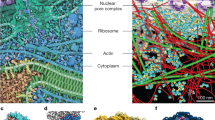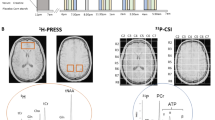Abstract
THE high affinity for oxygen possessed by muscle hæmoglobin suggested its use as a very sensitive spectroscopic method for detecting and measuring small quantities of oxygen1. This method has now been applied to study the oxygen evolution of isolated chloroplasts exposed to light. While being much less sensitive than the bacterial methods which have been successfully applied in the past, the hæmoglobin method (originally used by Hoppe-Seyler to demonstrate oxygen from green plants) has the advantage of giving the measure of oxygen. A solution of hæmoglobin containing 0.45 × 104 gm. atoms of iron per litre, is equivalent to 1 c.mm. of oxygen per c.c.; the degree of saturation can be determined spectroscopically with an accuracy of 5 per cent.
This is a preview of subscription content, access via your institution
Access options
Subscribe to this journal
Receive 51 print issues and online access
$199.00 per year
only $3.90 per issue
Buy this article
- Purchase on Springer Link
- Instant access to full article PDF
Prices may be subject to local taxes which are calculated during checkout
Similar content being viewed by others
References
Hill, R., Proc. Roy. Soc., B, 120, 472 (1936).
Rabinowitch, E., and Weiss, J., NATURE, 133, 1093 (1933).
Author information
Authors and Affiliations
Rights and permissions
About this article
Cite this article
HILL, R. Oxygen Evolved by Isolated Chloroplasts. Nature 139, 881–882 (1937). https://doi.org/10.1038/139881a0
Issue Date:
DOI: https://doi.org/10.1038/139881a0
This article is cited by
-
Combined effect of bicarbonate and water in photosynthetic oxygen evolution and carbon neutrality
Acta Geochimica (2023)
-
Physicochemical Biology and Knowledge Transfer: The Study of the Mechanism of Photosynthesis Between the Two World Wars
Journal of the History of Biology (2022)
-
Three overlooked photosynthesis papers of Otto Warburg (1883–1970), published in the 1940s in German and in Russian, on light-driven water oxidation coupled to benzoquinone reduction
Photosynthesis Research (2021)
-
Impact of light and sucrose supplementation on cellular differentiation, metabolic shift and modulation of gene expression in hairy roots of Daucus carota
Plant Cell, Tissue and Organ Culture (PCTOC) (2019)
-
The controversy over the minimum quantum requirement for oxygen evolution
Photosynthesis Research (2014)
Comments
By submitting a comment you agree to abide by our Terms and Community Guidelines. If you find something abusive or that does not comply with our terms or guidelines please flag it as inappropriate.



